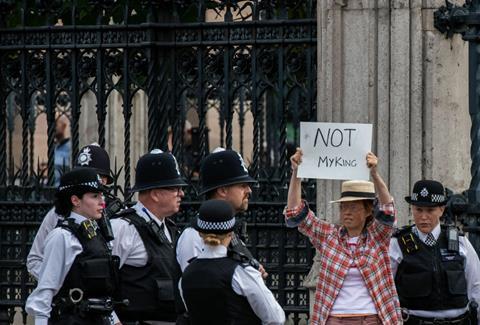
Many people only visit churches on special occasions, such as weddings and funerals. I am worried that the coronation will reinforce the notion that Christianity is not about everyday life, but about pomp and ceremony, about an occasional revival of antiquated traditions, about support for a world in which people submit to their supposed superiors. The 6 May will see Christian leaders at the heart of an event featuring people with medieval titles and thousands of ceremonial troops. Do we want to give people the impression that this is what Christianity is about?
My concern is not about Charles personally – he is a human being with good and bad points, like you and me. And of course, British monarchs have far less power than they used to. The problem is that monarchy sets the tone for an unequal society.
In the New Testament, we see Jesus proclaiming the Kingdom of God, where all are welcomed and all challenged. Jesus showed solidarity with the marginalised, he socialised with outcasts and turned structures upside down. Everyone who does the will of God, he said, is his “brother and sister and mother” (Mark 3:35). This is a vision that can excite people. It is the opposite of the hierarchical values upheld by earthly monarchy.
Charles Windsor, whatever his qualities as an individual, does not owe his position to an anointing by God. He is king because at various points his ancestors successfully fought off other claimants to the throne. I find it impossible to believe that all these acts of violence were somehow divinely inspired. Jesus defied and overcame the power of violence through his crucifixion and resurrection.
We cannot evangelise by giving people the impression that Christianity upholds inequality, hierarchy and violence. As Christians, we can promote the gospel not through celebrating the coronation, but through speaking out against it.





































No comments yet